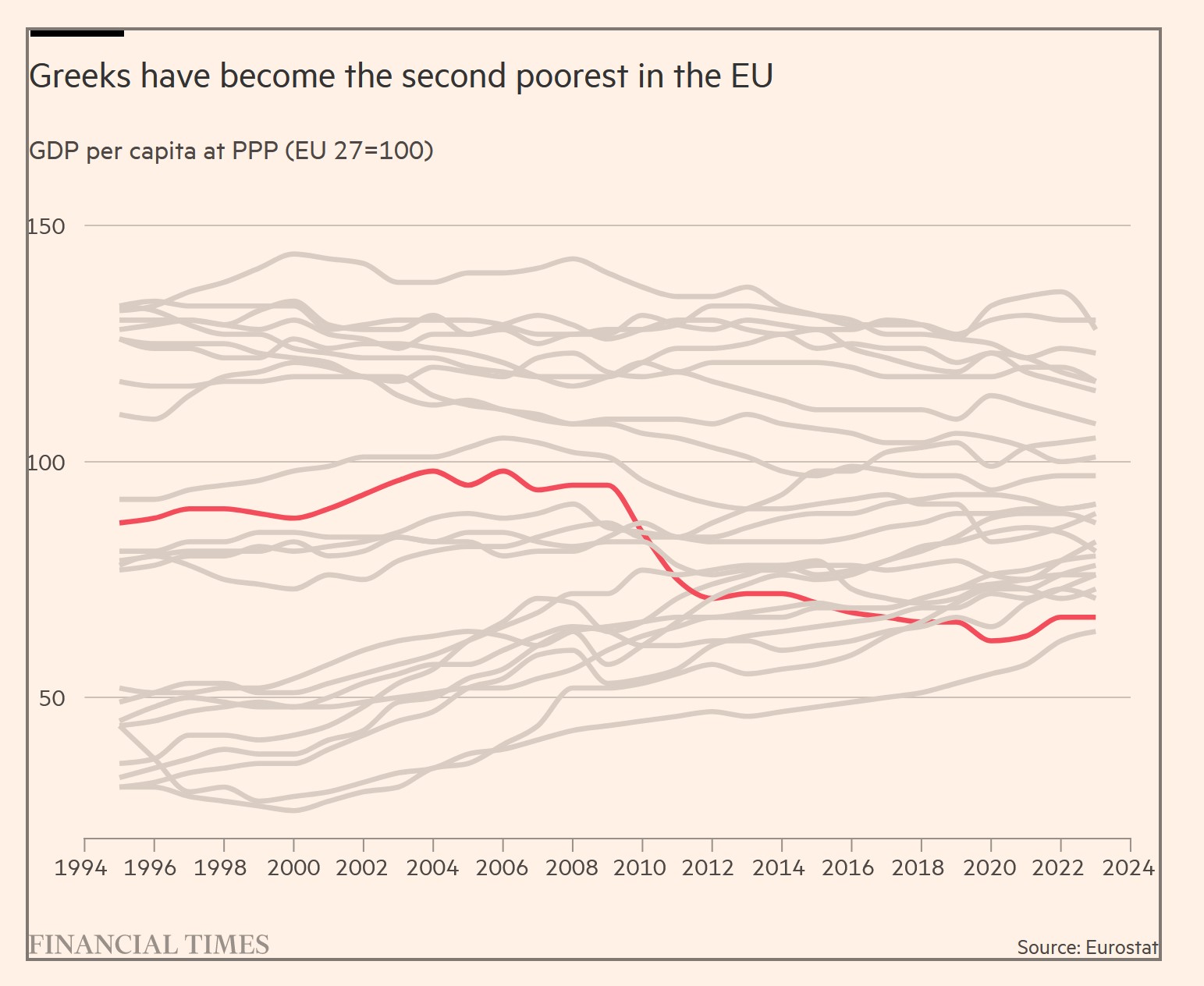
Dystopia is a showcase of the Greek economy in today's post Financial Timeswhich initially indicates a significant recovery of our country, after the memorandum period, with an increase in GDP, which also leads to a significant reduction in public debt, in some 162% of GDP in 2023. Also in 2023, we achieved a 2% increase in GDP, and the same is expected for this year, while the evaluations our country receives from international houses are positive.
But the issue is that this progress comes after a major recession since 2009 – when the financial crisis emerged – so despite the upward trend, our country appears… Today… the second poorest country in the European Union (Calculates it GDP per capita in purchasing power units), but also The poorest in the euro area. Greece's GDP is 19% lower than it was in 2007 (before the crisis).

Thus we have the phenomenon that our country “drowned” suddenly and dramatically, then recovered but at a relatively slow pace, and the same is true for other countries such as Romania, Croatia, Hungary, Poland, Portugal and others. To outshine us. While Bulgaria, the “poorest of all” today, is on the rise and preparing to overtake us.
The Financial Times also confirms that a large part of our income is due to tourism, as the threat of climate change is already emerging (making life difficult in the summer months, with high temperatures and water shortages), while of course the significant decline in births and our chronic demographic problem In addition to the departure of many young people from the country in search of better opportunities abroad, it contributes to thinking about our development.
The above findings of the Financial Times are not new, of course, but – our comment – they show how fragile our economic development remains, which remains subject to seasonal factors (tourism, exports of agricultural products), with a permanent shortage of employed personnel, and above all with a shortage of labor. . skills, with an aging population and a weak social “safety net” (eg with the downgrading of the NHS), with the lack of industrial base, with geopolitical instability in our region, as well as with a lack of know-how, innovation and investment in R&D.
In other words, issues that are directly related to our ability to maintain “national security,” not just in the obvious way, i.e. “gun buying,” but as a more general condition for a prosperous and strong national sphere.

“Avid problem solver. Extreme social media junkie. Beer buff. Coffee guru. Internet geek. Travel ninja.”





More Stories
“Recycling – Changing the water heater”: the possibility of paying the financing to the institution once or partially
Libya: US General Meets Haftar Amid Tensions Between Governments
New tax exemption package and incentives for business and corporate mergers..